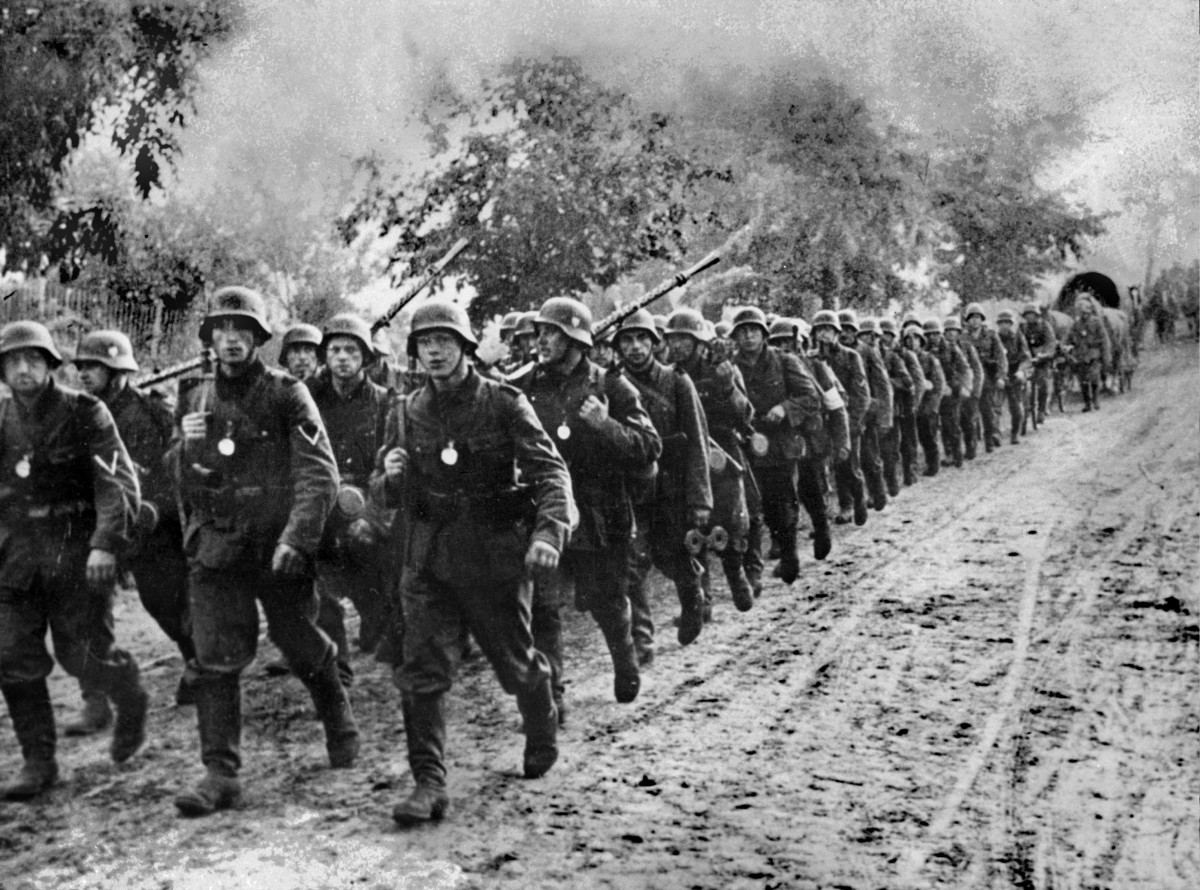Poland was clearly going to be Hitler’s next victim. The Germans regarded the Polish Corridor dividing East Prussia from the rest of Germany as an affront; so, too, was the separation from Germany of the free city of Danzig, German in language and tradition, on the edge of the Polish Corridor.
On March 23, 1939, Hitler took the port town of Memel from Poland’s northern neighbor, Lithuania. At the end of the month, the British and French responded by assuring Poland of aid in the event of a German attack.
The critical issue in the tense half year that led up to the outbreak of war on September 1, 1939, was whether Poland would undergo the same fate as Czechoslovakia and receive no support from the Western democracies. The British government made it clear that it would back away no longer.
The critical issue now was the attitude of the Soviet Union. Hitler had an understandable fear of a war against major powers on two fronts. But the Soviets deeply distrusted the British Tories under Chamberlain. This mistrust was not dispelled by a diplomatic mission that Britain and France sent to the Soviet Union in the summer of 1939.
The Western powers proposed a mutual assistance pact, but the negotiations were inept and halfhearted and the British negotiators lacked high rank. Hitler, who was also negotiating with the Soviet Union, put Foreign Minister Ribbentrop himself on the job. The Anglo-French overture to Moscow came to nothing; the Soviet leaders had apparently concluded that if they did not come to terms with Hitler, he would attack them.
To the horror of the West, on August 23, 1939, Stalin signed a nonaggression pact with Hitler. On September 1 the German army marched into Poland. On September 3 Britain and France honored their obligations and declared war on Germany. The democracies had not been able to halt a dedicated, ruthless, organized state. Since the Great Depression the Western democracies had been committed to helping their citizens attain minimum standards of material comfort; normally they would produce butter before guns.
Their totalitarian opponents, on the other hand, were able to convince or intimidate their people to agree that butter was to be attained in the future by making use of the guns if need be. They had persuaded their citizens to go without for the sake of military preparations; democratic states would find it difficult to get such sacrifices from their people until the war had actually begun.

